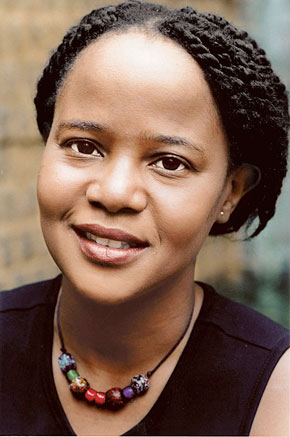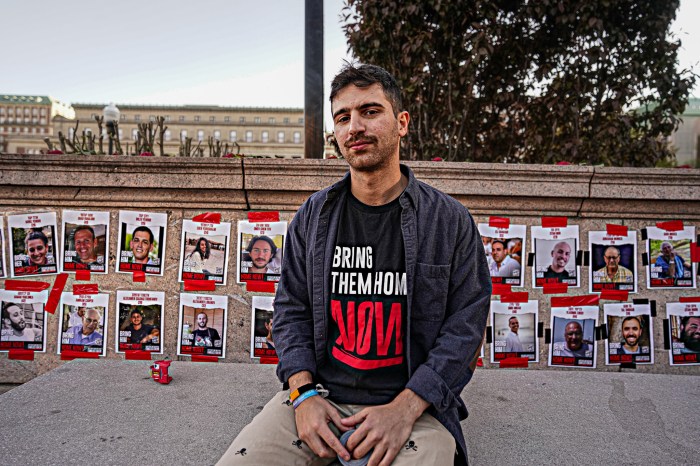The writer spoke with author Edwidge Danticat bare minutes after the abdication of Hosni Mubarak, and the Haitian born author found some interesting parallels between the revolutions that threw out the Egyptian strongman and the ghastly Duvalier regime in Haiti.
“[The Haitian people] did that before, in 1986, when the people rose up and Duvalier was forced to leave,” says Danticat, who edited the just released “Haiti Noir” by Akashic books. It’s an anthology of 19 stories about pre and post earthquake Haiti. “That dictatorship also lasted 30 years and ended with the son. One of the lessons today that’s relative to Haiti and the rest of the world is a true people’s revolution can take care of itself. Look how much destruction was caused in Iraq. But [in Egypt] people did this themselves. It goes a longer way than to have an invasion. When people take over their own destiny there’s no stopping them.”
When asked why Baby Doc even bothered to return to Haiti earlier this year she laughs. He came back for his money, obviously. Then she adds, “It seems he made many statements but the one I find worrisome is where he made a mild apology but then referred to the airport by the name his father gave it. That was a Freudian slip into the recesses of his mind, like he came back to revisit the past. That was disturbing. I don’t think he came to reconcile or he wouldn’t be renaming the airport after his father! A lot of people are still suffering with the scars of that dictatorship.”
Her family back in Haiti is “doing okay as can be expected. There’s still a lot of people in a lot of difficulty. Nothing’s easy.”
She’d just finished compiling stories for Haiti Noir when the earthquake hit. The publication date was already set, but she was able to add three more stories about the catastrophe.
“I was very worried how relevant the stories would become now,” she says. “Then when I read them over I thought, ‘Oh that still matters, it resonates even more because you have these stories now about places that no longer exist. It’s elegies for lost places.”
“It’s difficult to write fiction after a large even like that but glad we found writers who were able to take it on.”
Akashic publisher Johnny Temple approached her with the task of editing this latest in the renown Noir series.
“I was really thrilled because I thought it was an opportunity to showcase our writers,” Danticat says. She read 60-70 stories for the anthology. Some were wonderful, she admits, but had plot lines too close to stories that were even better.
Though most of the writers are Haitian, two aren’t. Still, Madison Smart Bell and Mark Kurlansky have been writing about Haiti for many years and were included. The stories deal more with personal crimes and misdemeanors than gumshoes in shadowy offices and heartless femme fatales. In “Odette,” by Patrick Sylvain, an old earthquake survivor who’s lost everything, including her granddaughter, is set upon by fellow survivors in a tent city for being a witch. The end of Katia Ulysse’s “The Last Department,” about two feuding sisters and their mother, is so horrible and unexpected that the only thing the reader can do is laugh.
“Sometimes difficult circumstances bring out the darkest elements of people,” Danticat explains.
That, one supposes, is why it’s still called “Noir.
























